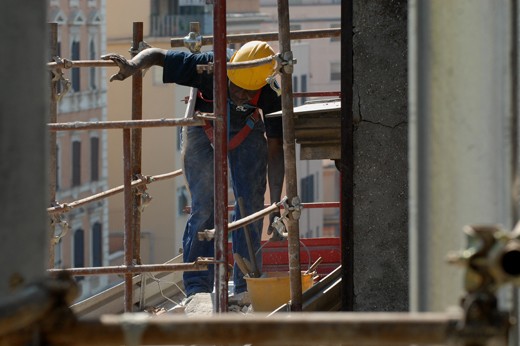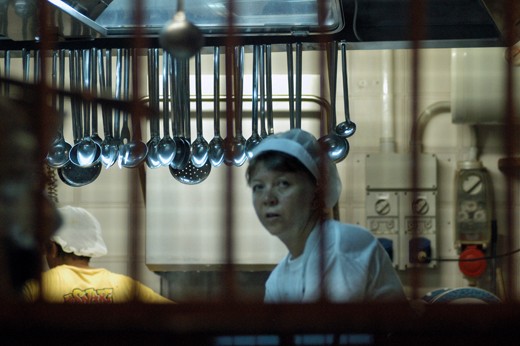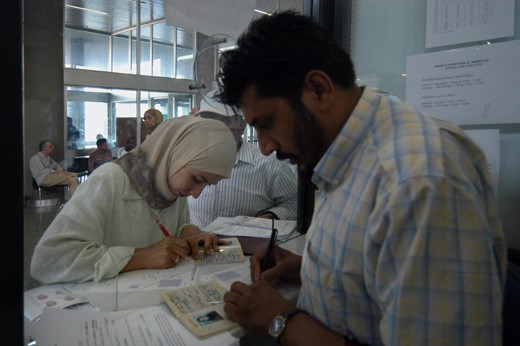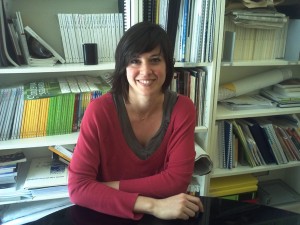T
he LAB-MIG-GOV team is composed by a network of individual, early-mid career researchers of different national and academic backgrounds. Besides, two institutional partners are involved: the Turin-based International Training Centre of the International Labour Organization (ITC-ILO), in charge of the dissemination activities within the Labour Migration Academy, and the Brussels-based think-tank, the European Policy Centre (EPC), in charge of researching the EU role in the management of labour migration. FIERI’s team and its director Ferruccio Pastore, as LAB-MIG-GOV’s leading partner, are in charge of managing and coordinating all the research and networking activities.
Researchers
-
Ferruccio Pastore
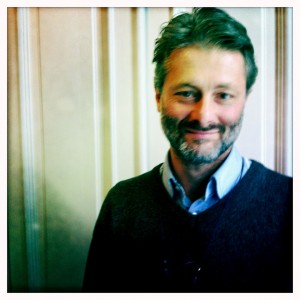 Dr. Ferruccio Pastore (PhD, European University Institute, 1996) is since May 2009 the Director of FIERI (International and European Forum for Migration Research, www.fieri.it), an independent research institute based in Torino (Italy). He has previously been Deputy Director of the international relations think-tank CeSPI (Centre for International Policy Studies, Rome) and a post-doctoral fellow at the University of Firenze. Besides research, he has worked as an adviser on migration policy issues for Italian institutions (among which the National Council of Economy and Labour and the Schengen Parliamentary Committee) and international organisations (among which IOM and ILO). He has written extensively on comparative and European migration policies, security policies, citizenship. He is currently Chair of the Migration and Integration Forum of the European Policy Centre (EPC, www.epc.eu, Brussels) and a member of the EU Independent Network of Labour Migration and Integration Experts.
Dr. Ferruccio Pastore (PhD, European University Institute, 1996) is since May 2009 the Director of FIERI (International and European Forum for Migration Research, www.fieri.it), an independent research institute based in Torino (Italy). He has previously been Deputy Director of the international relations think-tank CeSPI (Centre for International Policy Studies, Rome) and a post-doctoral fellow at the University of Firenze. Besides research, he has worked as an adviser on migration policy issues for Italian institutions (among which the National Council of Economy and Labour and the Schengen Parliamentary Committee) and international organisations (among which IOM and ILO). He has written extensively on comparative and European migration policies, security policies, citizenship. He is currently Chair of the Migration and Integration Forum of the European Policy Centre (EPC, www.epc.eu, Brussels) and a member of the EU Independent Network of Labour Migration and Integration Experts. -
Eleonora Castagnone
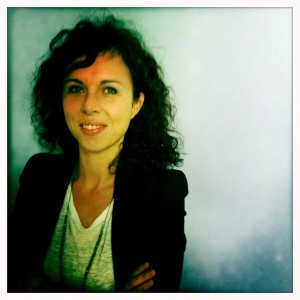 Eleonora Castagnone holds a PhD in Sociology from the University of Milan and a masters’ degree in Management of Development from the International Training Center of the ILO of Turin. Since 2003 she works at FIERI, where she’s senior researcher and project manager. Her main research interests lay on migrants’ entrepreneurship; trajectories of labour integration in destination countries; transnationalism; migration and development.
Eleonora Castagnone holds a PhD in Sociology from the University of Milan and a masters’ degree in Management of Development from the International Training Center of the ILO of Turin. Since 2003 she works at FIERI, where she’s senior researcher and project manager. Her main research interests lay on migrants’ entrepreneurship; trajectories of labour integration in destination countries; transnationalism; migration and development. -
Claudia Finotelli
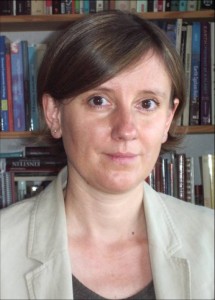 Claudia Finotelli is a “Ramón y Cajal” Researcher at the Universitad Complutense in Madrid and associate researcher of the Instituto Universitario Ortega y Gasset in Madrid, where she coordinates the Doctoral Programme on International Migration and Social Integration. She holds a Ph.D. in Political Science from the University of Münster (Germany). Her research interests cover the areas of migration control and integration policies in Southern European countries and Canada. She has published on irregular migration, comparative migration policies and integration policies in Southern Europe. Among her most recent works, “The heuristic potential of citizenship and integration models reviewed” (with Ines Michalowski, forthcoming September 2012), a special issue of the Journal of Immigrant and Refugee Studies.
Claudia Finotelli is a “Ramón y Cajal” Researcher at the Universitad Complutense in Madrid and associate researcher of the Instituto Universitario Ortega y Gasset in Madrid, where she coordinates the Doctoral Programme on International Migration and Social Integration. She holds a Ph.D. in Political Science from the University of Münster (Germany). Her research interests cover the areas of migration control and integration policies in Southern European countries and Canada. She has published on irregular migration, comparative migration policies and integration policies in Southern Europe. Among her most recent works, “The heuristic potential of citizenship and integration models reviewed” (with Ines Michalowski, forthcoming September 2012), a special issue of the Journal of Immigrant and Refugee Studies. -
Monica Quirico
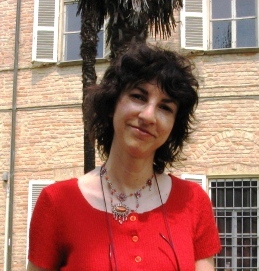 Monica Quirico, Ph.D. in History of Political Ideas, Political Institutions and Political Philosophy (University of “La Sapienza”, Rome), is “honorary research fellow” at the Institute of Contemporary History, Södertörn University, Stockholm, and research fellow at the FIERI, Turin. Her main research field is Swedish history and society. On this topic she has published, besides several journal articles, a book: Il socialismo davanti alla realtà. Il modello svedese 1990-2006, Roma, Editori Riuniti, 2007. She has edited and translated the first anthology in Italian language of Olof Palme’s speeches and writings (Tra utopia e realtà. Olof Palme e il socialismo democratico, Roma, Editori Riuniti University Press, 2009).
Monica Quirico, Ph.D. in History of Political Ideas, Political Institutions and Political Philosophy (University of “La Sapienza”, Rome), is “honorary research fellow” at the Institute of Contemporary History, Södertörn University, Stockholm, and research fellow at the FIERI, Turin. Her main research field is Swedish history and society. On this topic she has published, besides several journal articles, a book: Il socialismo davanti alla realtà. Il modello svedese 1990-2006, Roma, Editori Riuniti, 2007. She has edited and translated the first anthology in Italian language of Olof Palme’s speeches and writings (Tra utopia e realtà. Olof Palme e il socialismo democratico, Roma, Editori Riuniti University Press, 2009). -
Ester Salis
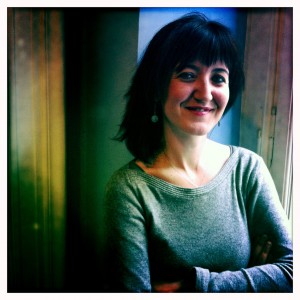 Ester Salis holds a master degree in Development Studies from the University of Turin. She is currently a PhD student in Sociology at the Graduate School in Social and Political Sciences (GSSPS) of the University of Milan. Her doctoral research is focused on labour migration governance systems and their impact on the socio-economic integration of migrant workers in Europe. Between 2008 and 2009 she carried out an internship at the International Training Centre of the ILO in Turin and the ILO Headquarters in Geneva. Since 2009 she collaborates with FIERI, carrying out research on various issues among which migrants’ organizations, migration and development, and labour migration.
Ester Salis holds a master degree in Development Studies from the University of Turin. She is currently a PhD student in Sociology at the Graduate School in Social and Political Sciences (GSSPS) of the University of Milan. Her doctoral research is focused on labour migration governance systems and their impact on the socio-economic integration of migrant workers in Europe. Between 2008 and 2009 she carried out an internship at the International Training Centre of the ILO in Turin and the ILO Headquarters in Geneva. Since 2009 she collaborates with FIERI, carrying out research on various issues among which migrants’ organizations, migration and development, and labour migration. -
Barbara Laubenthal
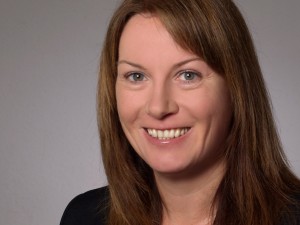 Barbara Laubenthal is a postdoctoral fellow at the center of excellence “Cultural foundations of integration” of the university of Konstanz. She holds a PhD in political science from the Justus-Liebig-Universität Giessen. From October 2011 to March 2012, she was visiting professor at the Chair of Sociology/Migration and Integration at the Eberhard-Karls-Universität Tübingen From 2006 -2011 she was lecturer at the Chair Sociology/ Organisation, Migration, Participation at the Ruhr-Universität Bochum. Her main interests and fields of expertise are immigration policies in Western Europe, irregular migration, transnationalism and the governance of the past. Her publications include: Migration und Alter. Eine transnationale Perspektive (with Ludger Pries), in: Baykara-Krumme, H. et al.: Viele Welten des Alterns? Ältere Migrantinnen und Migranten im alternden Deutschland.Wiesbaden: VS Verlag für Sozialwissenschaften, 2012. The negotiation of social rights of irregular migrants in Germany – a challenge to the nation-state, in: Ethnic and Racial Studies, special issue ‘Undocumented Migrants: Policy, Politics, Motives and Everyday Lives’, 34 (8), 1357-1373, 2011. The role of economic-non-state actors in labour migration policies: The German case in the European context, Rome, CESPI, February 2009; Two steps forward, one step back. Recent trends in German migration policy, Rome, CeSPI, 2008; Der Kampf um Legalisierung. Soziale Bewegungen illegaler Migranten in Frankreich, Spanien und der Schweiz, Frankfurt am Main/New York, Campus-Verlag, 2007.
Barbara Laubenthal is a postdoctoral fellow at the center of excellence “Cultural foundations of integration” of the university of Konstanz. She holds a PhD in political science from the Justus-Liebig-Universität Giessen. From October 2011 to March 2012, she was visiting professor at the Chair of Sociology/Migration and Integration at the Eberhard-Karls-Universität Tübingen From 2006 -2011 she was lecturer at the Chair Sociology/ Organisation, Migration, Participation at the Ruhr-Universität Bochum. Her main interests and fields of expertise are immigration policies in Western Europe, irregular migration, transnationalism and the governance of the past. Her publications include: Migration und Alter. Eine transnationale Perspektive (with Ludger Pries), in: Baykara-Krumme, H. et al.: Viele Welten des Alterns? Ältere Migrantinnen und Migranten im alternden Deutschland.Wiesbaden: VS Verlag für Sozialwissenschaften, 2012. The negotiation of social rights of irregular migrants in Germany – a challenge to the nation-state, in: Ethnic and Racial Studies, special issue ‘Undocumented Migrants: Policy, Politics, Motives and Everyday Lives’, 34 (8), 1357-1373, 2011. The role of economic-non-state actors in labour migration policies: The German case in the European context, Rome, CESPI, February 2009; Two steps forward, one step back. Recent trends in German migration policy, Rome, CeSPI, 2008; Der Kampf um Legalisierung. Soziale Bewegungen illegaler Migranten in Frankreich, Spanien und der Schweiz, Frankfurt am Main/New York, Campus-Verlag, 2007. -
Camilla Devitt
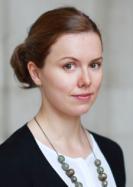 Camilla Devitt is a Lecturer in the School of Social Sciences and Philosophy, Trinity College Dublin. Her main research interests are in West European labour immigration and labour market policies.She obtained her PhD in political and social sciences from the European University Institute, Florence and was employed as a researcher at the Institute’s Robert Schuman Centre for Advanced Studies. She has also lectured on labour immigration policy at Florence University, CàFoscari University, Venice and the International Training Centre of the International LabourOrganisation, Turin. Recent publications include: (2010) “The migrant worker factor in labour market policy reform” European Journal of Industrial Relations, 16 (3): 259-77; (2011) “Varieties of Capitalism, Variation in Labour Migration” Journal of Ethnic and Migration Studies 37(4): 579-97; and (2011) “The Rosarno Revolt: towards political mobilization for immigrants?” Chapter 9 in Much Ado About Nothing? Italian Politics Volume 26 edited by ElisabettaGualmini and EleonoraPasotti, New York: Berghahn Books.
Camilla Devitt is a Lecturer in the School of Social Sciences and Philosophy, Trinity College Dublin. Her main research interests are in West European labour immigration and labour market policies.She obtained her PhD in political and social sciences from the European University Institute, Florence and was employed as a researcher at the Institute’s Robert Schuman Centre for Advanced Studies. She has also lectured on labour immigration policy at Florence University, CàFoscari University, Venice and the International Training Centre of the International LabourOrganisation, Turin. Recent publications include: (2010) “The migrant worker factor in labour market policy reform” European Journal of Industrial Relations, 16 (3): 259-77; (2011) “Varieties of Capitalism, Variation in Labour Migration” Journal of Ethnic and Migration Studies 37(4): 579-97; and (2011) “The Rosarno Revolt: towards political mobilization for immigrants?” Chapter 9 in Much Ado About Nothing? Italian Politics Volume 26 edited by ElisabettaGualmini and EleonoraPasotti, New York: Berghahn Books. -
Yves Pascouau
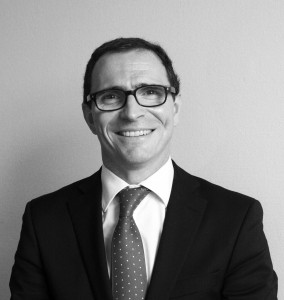 Yves Pascouau is Senior Policy Analyst at the European Policy Centre, and is responsible for the European Migration and Diversity Programme.
Yves Pascouau is Senior Policy Analyst at the European Policy Centre, and is responsible for the European Migration and Diversity Programme.
He has researched and published widely on European and national immigration, asylum and integration policies. His current work is mainly dedicated to EU development in the field of immigration, asylum and integration.
Prior to joining the European Policy Centre, he worked as researcher in France and at the Université Libre de Bruxelles. He holds a PhD in Law from Pau University in France. -
Alex Lazarowicz
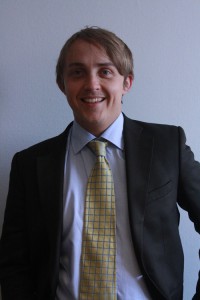 Alex Lazarowicz is Junior Policy Analyst in the European Migration and Diversity Programme at the EPC. He works closely on the external dimension of migration policy, as well as on legal migration and integration. He gained valuable experience on migration policy while working for the Polish Presidency of the Council of the European Union in 2011. There he worked mainly on preparations for the Strategic Committee on Immigration, Frontiers and Asylum, as well as external cooperation in the JHA field, particularly with the Balkans. He was also in charge of the EU-LAC and ACP-EU migration dialogues.He also has previous experience working in the European Commission, and European Parliament- the latter being part of his BA studies at University College London (University of London). He also holds an MA in International Studies and Diplomacy from SOAS (University of London).”
Alex Lazarowicz is Junior Policy Analyst in the European Migration and Diversity Programme at the EPC. He works closely on the external dimension of migration policy, as well as on legal migration and integration. He gained valuable experience on migration policy while working for the Polish Presidency of the Council of the European Union in 2011. There he worked mainly on preparations for the Strategic Committee on Immigration, Frontiers and Asylum, as well as external cooperation in the JHA field, particularly with the Balkans. He was also in charge of the EU-LAC and ACP-EU migration dialogues.He also has previous experience working in the European Commission, and European Parliament- the latter being part of his BA studies at University College London (University of London). He also holds an MA in International Studies and Diplomacy from SOAS (University of London).” -
Alessio Cangiano
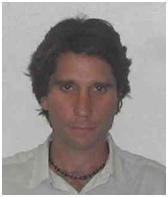 Alessio Cangiano is a demographer with a specific expertise on migration, labour market and ageing issues. He is currently working as Senior Lecturer in Population Studies at the University of the South Pacific (USP), Suva (Fiji Islands). Before joining USP he had been working for six years as a Research Officer at the Center on Migration, Policy and Society (University of Oxford). Alessio holds a PhD in Demography from the University of Rome ‘La Sapienza’ (2005) partly supported by EU Marie Curie research training funding. During his PhD studies he was a visiting fellow at the French Institute for Demographic Studies (INED) and the Max Planck Institute for Demographic Research (Germany). Alessio has published over 20 journal articles, book chapters and research reports on a range of migration-related issues, including: migrant labour market incorporation; the collection and assessment of migration data; the impact of migration on demographic structures and social security systems; and the local policy responses to immigration in UK and Italian cities. In addition to his academic work, he has significant experience of research dissemination in policy environments gained through frequent collaborations with public and third-sector organizations and consultancy work carried out for the European Parliament and the European Commission.
Alessio Cangiano is a demographer with a specific expertise on migration, labour market and ageing issues. He is currently working as Senior Lecturer in Population Studies at the University of the South Pacific (USP), Suva (Fiji Islands). Before joining USP he had been working for six years as a Research Officer at the Center on Migration, Policy and Society (University of Oxford). Alessio holds a PhD in Demography from the University of Rome ‘La Sapienza’ (2005) partly supported by EU Marie Curie research training funding. During his PhD studies he was a visiting fellow at the French Institute for Demographic Studies (INED) and the Max Planck Institute for Demographic Research (Germany). Alessio has published over 20 journal articles, book chapters and research reports on a range of migration-related issues, including: migrant labour market incorporation; the collection and assessment of migration data; the impact of migration on demographic structures and social security systems; and the local policy responses to immigration in UK and Italian cities. In addition to his academic work, he has significant experience of research dissemination in policy environments gained through frequent collaborations with public and third-sector organizations and consultancy work carried out for the European Parliament and the European Commission. -
Francesco Tarantino
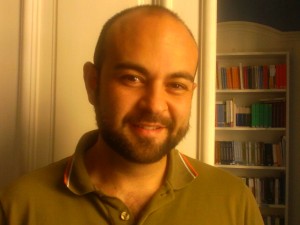 Francesco Tarantino holds a PhD in Political Science and International Relations (University of Turin) and a master degree in Political Science of the University Roma Tre. In 2007 he carried out in Florence, the Silvano Tosi School on Parliamentary Studies and Researches organized by Senate of Italian Republic and University of Florence. Since 2008 he collaborates with FIERI, carrying out researches on various issues among which transnational political participation, citizenship and voting rights, ethnic entrepreneurship, local welfare and labour migration. Recent publications include: (2012) Rappresentanza e Voto in America Meridionale, in Tintori G. (a cura di), Il voto degli altri, Rosenberg&Sellier; (2007) Il voto degli italiani all’estero: le difficoltà di attuazione delle norme in Argentina, in Quaderni dell’Osservatorio Elettorale, 57; Peru case study in Transnational Political Activities of Peruvians, Rumanians and Polish citizens in Rome and Turin, Fieri Research Report, 2009.
Francesco Tarantino holds a PhD in Political Science and International Relations (University of Turin) and a master degree in Political Science of the University Roma Tre. In 2007 he carried out in Florence, the Silvano Tosi School on Parliamentary Studies and Researches organized by Senate of Italian Republic and University of Florence. Since 2008 he collaborates with FIERI, carrying out researches on various issues among which transnational political participation, citizenship and voting rights, ethnic entrepreneurship, local welfare and labour migration. Recent publications include: (2012) Rappresentanza e Voto in America Meridionale, in Tintori G. (a cura di), Il voto degli altri, Rosenberg&Sellier; (2007) Il voto degli italiani all’estero: le difficoltà di attuazione delle norme in Argentina, in Quaderni dell’Osservatorio Elettorale, 57; Peru case study in Transnational Political Activities of Peruvians, Rumanians and Polish citizens in Rome and Turin, Fieri Research Report, 2009. -
Miriam Boudra
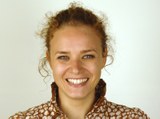 Miriam Boudraa holds an advanced degree in European business law and in political science from Robert Schuman University, Strasbourg, France. She also holds an advanced degree in international relations, with a specialization in European Union law and policy on immigration and asylum, from the Institute for European Studies in Brussels. She has worked for the Ministry of Justice in France, where she prepared a comparative report on the legal system in Tunisia and Algeria. She then worked for the European Commission’s “EuropeAid” office, before moving to Burkina Faso on a project concerning access to basic education, then to Algeria, where she managed a project on SME development for the Delegation of the European Commission. She also assisted the head of operations and cooperation with follow-up to the European neighborhood association agreement. Since 2006, she has been working for the Social Protection Programme of the ITC-ILO, where she is responsible for activities on labour migration and HIV/AIDS.
Miriam Boudraa holds an advanced degree in European business law and in political science from Robert Schuman University, Strasbourg, France. She also holds an advanced degree in international relations, with a specialization in European Union law and policy on immigration and asylum, from the Institute for European Studies in Brussels. She has worked for the Ministry of Justice in France, where she prepared a comparative report on the legal system in Tunisia and Algeria. She then worked for the European Commission’s “EuropeAid” office, before moving to Burkina Faso on a project concerning access to basic education, then to Algeria, where she managed a project on SME development for the Delegation of the European Commission. She also assisted the head of operations and cooperation with follow-up to the European neighborhood association agreement. Since 2006, she has been working for the Social Protection Programme of the ITC-ILO, where she is responsible for activities on labour migration and HIV/AIDS.
Institutional partners
-
European Policy Centre
The European Policy Centre (EPC) is an independent, not-for-profit think tank, committed to making European integration work. The EPC works at the “cutting edge” of European and global policy-making providing its members and the wider public with rapid, high-quality information and analysis on the EU and global policy agenda. It aims to promote a balanced dialogue between the different constituencies of its membership, spanning all aspects of economic and social life. In line with its multi-constituency approach, members of the EPC comprise companies, professional and business federations, trade unions, diplomatic missions, regional and local bodies, as well as NGOs representing a broad range of civil society interests, foundations, international and religious organisations. -
International Training Center of the International Labour Organisation
ITC-ILO, International Training Center of the International Labour Organisation. The International Labour Organization and the Italian Government established the International Training Centre in 1964 in Turin, Italy, as an advanced vocational training institute.It has since matured into a focal point for high-level in-service training. This takes place in Turin, in course participants’ home countries or via the Internet.The Centre provides training and related services that develop human resources and institutional capabilities. It thereby contribute to achieving the ILO’s goal of decent work for women and men. Among its manifold activities, ITC-ILO carries out several training activities on topics related to labour migration and the protection of migrant workers’ rights within its International Labour Migration programme.
Other Staff
-
Eleonora La Rosa
-
Andrea Sabbadini
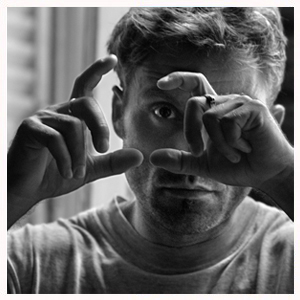 Andrea Sabbadini holds a Degree in Psychology from the University of Rome and studied Photography at the School of Visual and Performing Arts, City of Westminster, College of London. Since the mid-nineties he has been working for newspapers, magazines and publishing companies; religious, artistic, humanitarian and research associations, mainly covering social issues. Between 2005 and 2011 he taught Photography in the Media at the Richmond University in Rome and gave lectures of photo journalism at the Institute of Photography and Integrated Communication in Rome. His website is: http://andreasabbadini.photoshelter.com/
Andrea Sabbadini holds a Degree in Psychology from the University of Rome and studied Photography at the School of Visual and Performing Arts, City of Westminster, College of London. Since the mid-nineties he has been working for newspapers, magazines and publishing companies; religious, artistic, humanitarian and research associations, mainly covering social issues. Between 2005 and 2011 he taught Photography in the Media at the Richmond University in Rome and gave lectures of photo journalism at the Institute of Photography and Integrated Communication in Rome. His website is: http://andreasabbadini.photoshelter.com/




